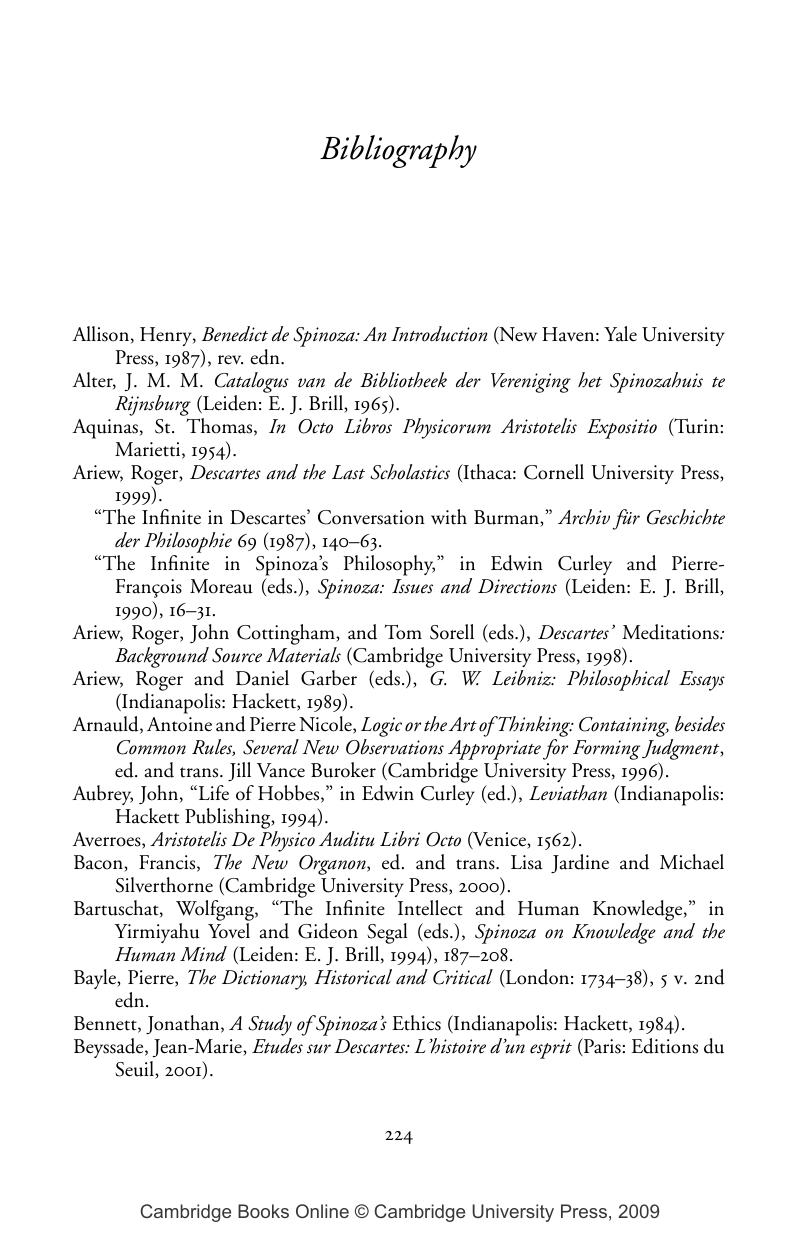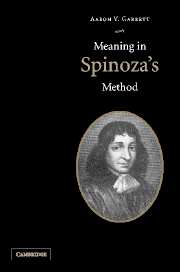Book contents
- Frontmatter
- Contents
- Acknowledgments
- List of abbreviations
- Texts and editions
- Introduction
- 1 A worm in the blood: some central themes in Spinoza's Ethics
- 2 A few further basic concepts
- 3 Emendative therapy and the Tractatus de Intellectus Emendatione
- 4 Method: analysis and synthesis
- 5 Maimonides and Gersonides
- 6 Definitions in Spinoza's Ethics: where they come from and what they are for
- 7 The third kind of knowledge and “our” eternity
- Bibliography
- Index of passages referred to and cited
- General index
- References
Bibliography
Published online by Cambridge University Press: 22 September 2009
- Frontmatter
- Contents
- Acknowledgments
- List of abbreviations
- Texts and editions
- Introduction
- 1 A worm in the blood: some central themes in Spinoza's Ethics
- 2 A few further basic concepts
- 3 Emendative therapy and the Tractatus de Intellectus Emendatione
- 4 Method: analysis and synthesis
- 5 Maimonides and Gersonides
- 6 Definitions in Spinoza's Ethics: where they come from and what they are for
- 7 The third kind of knowledge and “our” eternity
- Bibliography
- Index of passages referred to and cited
- General index
- References
Summary

- Type
- Chapter
- Information
- Meaning in Spinoza's Method , pp. 224 - 230Publisher: Cambridge University PressPrint publication year: 2003



